Hard water can cause visible damage to your skin. The minerals in hard water pull moisture from the skin, while the chlorine in it can irritate and cause inflammation.
But, if you’ve already felt its negative effects, it’s not the end of the world. You can easily improve your skin’s condition by making a few simple changes in your daily habits.
Here’s what you can do:
1. Use a Soft Water Shower Filter or Install a Whole House Filtration System
A soft water filter removes excess minerals from hard water. This makes the water a lot less irritating to your skin.
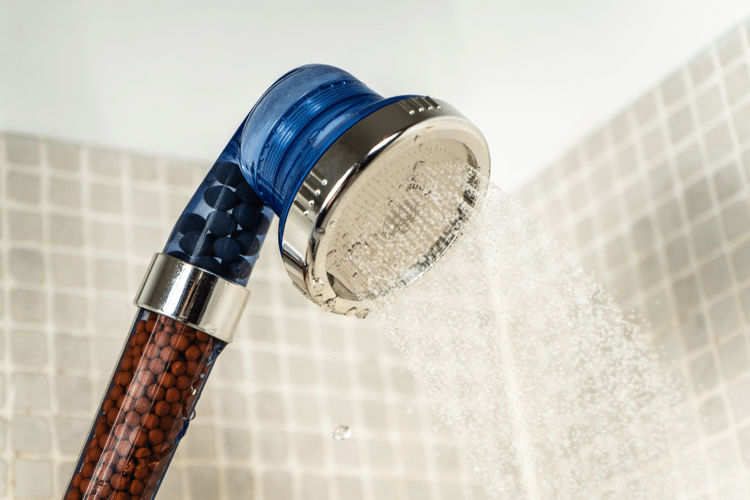
There are many different soft water filters on the market, and they all come with their advantages and disadvantages. Researching the features of a filter before you buy will go a long way in your pursuit of the best quality water that you can get.
A whole home filtration system is another good option to consider because by installing one, you are completely eliminating the diluted tap water debris and contaminants that get stuck in and around your tube installation.
2. Change Your Shower Head:
Old shower heads tend to accumulate excess debris and hard water minerals.
In most situations, attempting to scrub this off will just be a waste of time. Over time, the accumulation will have solidified and successfully amalgamated with the shower head itself. That’s why it’s a great idea to replace your shower head.
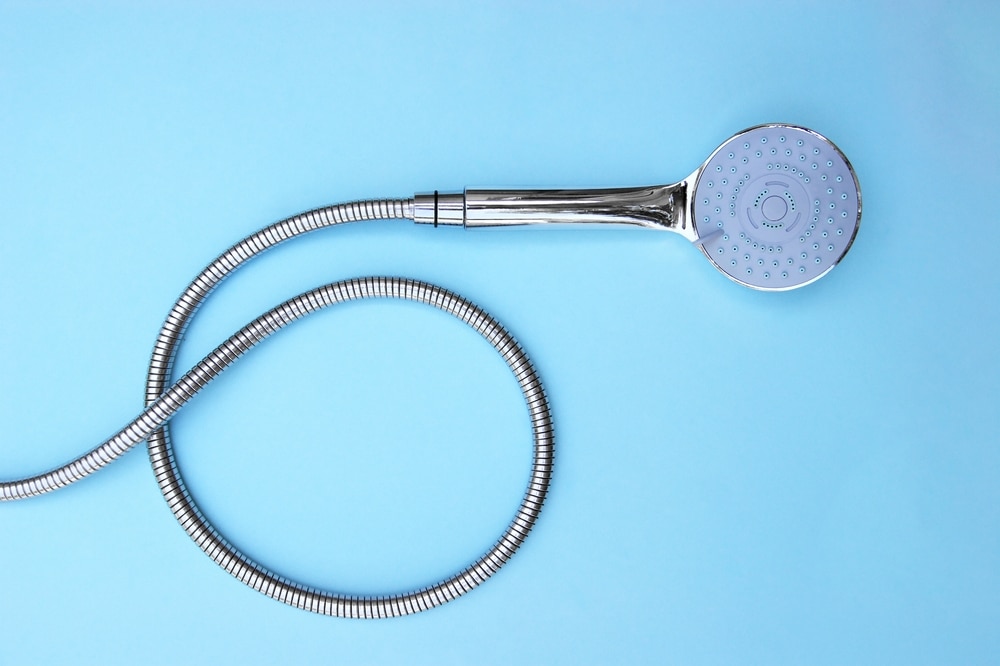
Here’s how to fix a new shower head yourself:
Step 1: Start by turning the shower head counterclockwise by hand until it comes undone.
Step 2: From here, take a wrench and unscrew the old shower head. After you make sure that there is no lingering debris from the old one, you can get to attaching the new one.
Step 3: Screw the fixed shower head replacement into place by turning it clockwise and tightening it.
Step 4: If there are water leaks, use seal tape and tighten the head once again.
3. Use a Cleanser and Moisturizer Daily
One of the consequences of showering or washing your face with hard water is that it strips away moisture from your skin. So, keeping your skin hydrated is one of the best things that you can do to fight the negative effects of hard water.
They best way keep your skin hydrated and protected every day is by using a cleanser to cleanse your skin and then applying moisturizer right after.
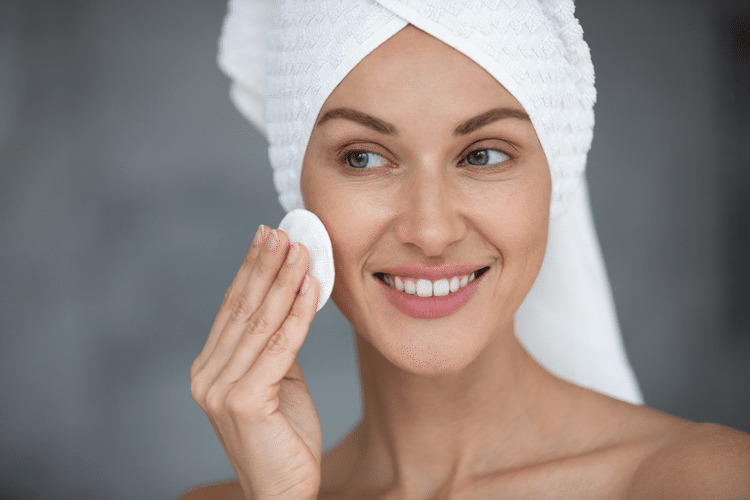
A moisturizing cleanser doesn’t strip the skin unnecessarily and can actually help replenish its natural oils.
For the best results, look for a non-drying cleanser that contains hyaluronic acid and that has a pH that’s close to your skin’s pH levels (between 4.0-5.0). Hyaluronic acid binds to the water in your skin and helps the skin lock in moisture. This keeps the skin hydrated, eliminates ashiness and dryness, and lowers inflammation.
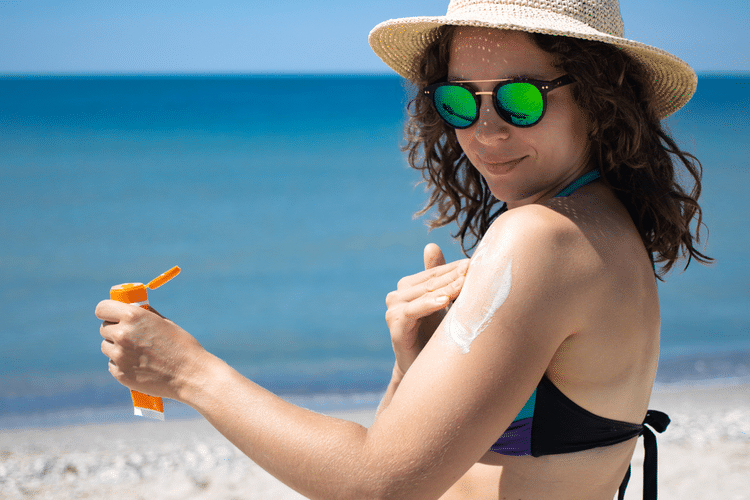
In addition to using a moisturizing cleanser, you should also use a moisturizer regularly.
4. Consider Using a Humidifier
Although humidifiers aren’t usually associated with hard water protection, they can definitely mitigate its side effects.
They are an excellent choice for those who don’t like applying products directly to their skin or can’t get into the habit of doing so. For those who do, Humidifier is still a helpful addition to a skincare routine aimed at maximizing hydration, particularly if you live in a dry climate or during the winter months.
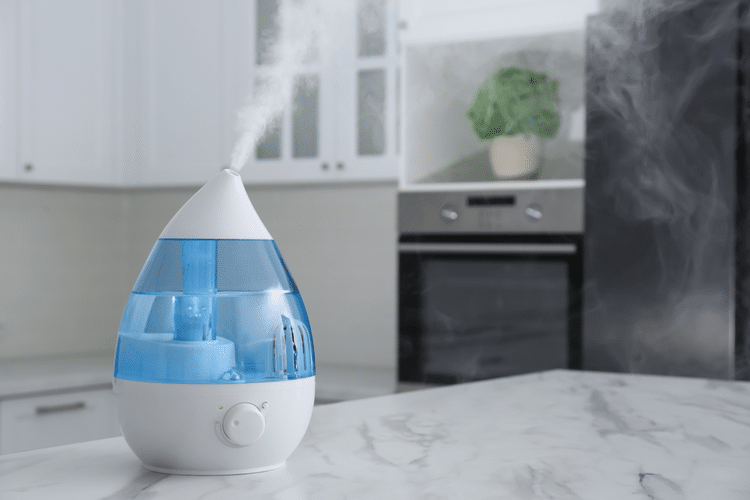
The way humidifiers work is rather simple: they infuse moisture directly into the air, keeping your skin hydrated.
But that’s not the only benefit that you’ll be getting. Keeping the air in your living space nice and moist can reduce the spread of germs, relieve allergies and asthma symptoms, and loosen congestion.
You’ll be able to find a slew of different air moisturizers and humidifiers based on your needs and environment.
5. Adjust Showering Habits
Your showering habits can drastically affect your skin condition. To avoid further damage to your skin, there are a few things that you can do about it:
- Avoid using super hot water, as this can further dry out the skin.
- Use a shower head filter to remove the minerals from the water.
- Avoid harsh soaps and cleansers that can strip the skin of its natural oils even more.
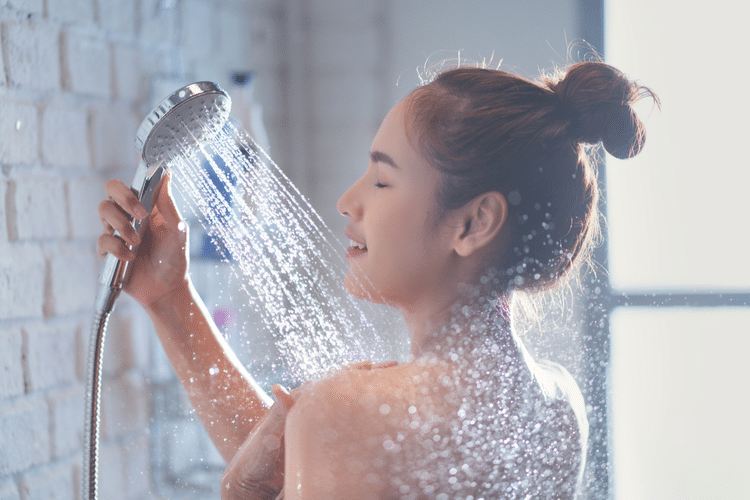
Also Read our article on Tips for washing hair in hard water
6. Drink Plenty of Water to Stay Hydrated
Drink water regularly. While this might seem like a no-brainer, many of us actually don’t drink enough water on a daily basis.
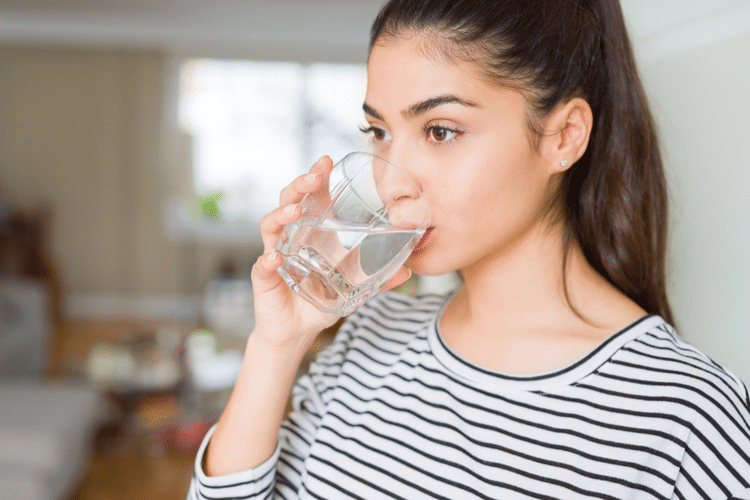
Staying hydrated is one of the best things you can do to keep your skin fresh. When the body gets proper hydration, it immediately reflects on the skin—you will have less dry patches, breakouts, and irritation.
7. Wear Sunscreen to Protect the Skin
Sunscreen is the alpha and omega of skincare.
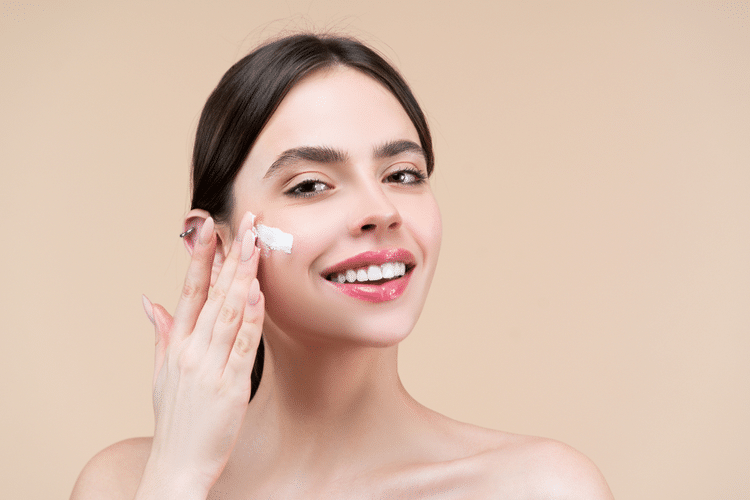
Apart from preventing sunburn, using sunscreen on a regular basis can help with premature aging and skin elasticity. Don’t hesitate to make sunscreen a part of your daily routine. In fact, it’s recommended that you apply it every two hours when you are out and about.
8. Eat a Water-Rich Diet More Frequently
What you eat is as important as what you drink. Your diet will immediately reflect on your skin. This is why it’s paramount to follow a diet plan that keeps your skin adequately hydrated.
It’s a balancing act. You make up for what the hard water does to your skin by adjusting your diet.

To keep your skin healthy and ready to take on some hard water exposure, you should be consuming a lot of fruits and vegetables on a regular basis so that you can stay hydrated inside out.
The Effects of Hard Water on Human Skin
The minerals in hard water strips the skin of its natural oils, leading to dryness.
The chlorine in hard water is a strong oxidant that can damage skin cells, leading to irritation and inflammation. Prolonged chlorine exposure is also known to cause early aging, which includes fine lines and wrinkles on the skin. If you’re considering buying a hard water filter, make sure that it also removes chlorine.
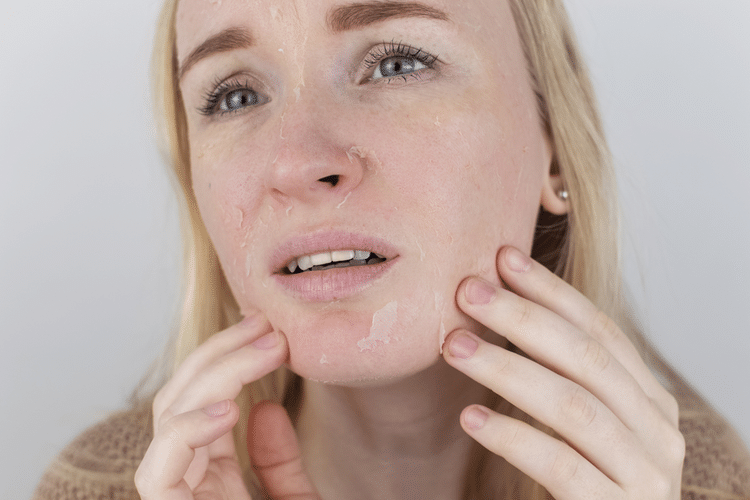
Hard water can also make acne and eczema worse. Since it pulls moisture from the skin, hard water causes minerals to build up on the surface, which inflames existing acne and eczema.
It leads to acne by creating an imbalance in the skin renewal process, that is, the natural way by which the skin gets rid of dead skin cells and regenerates new ones.
When this process gets disrupted, it can cause or exacerbate clogged pores and breakouts.
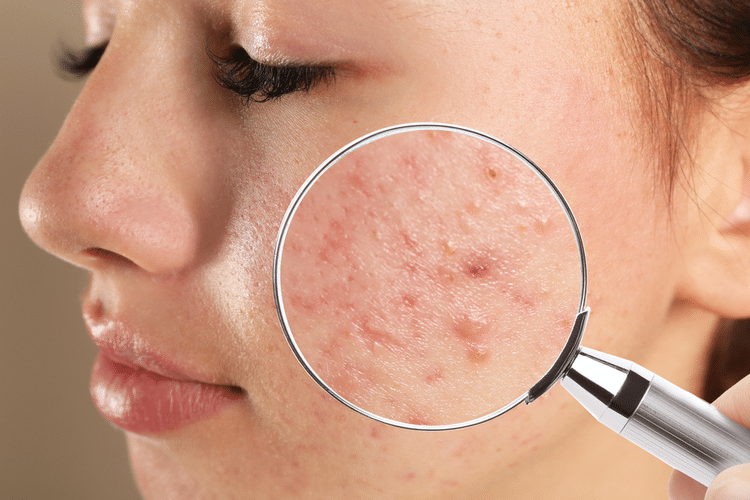
Can Hard Water Cause Acne?
Hard water causes acne by creating an imbalance in the skin renewal process. The skin renewal process is a natural way that the skin gets rid of dead skin cells and regenerates new ones. When this process gets disrupted, it can lead to clogged pores and breakouts.
Hard Water Skin Care Products
1. Fragrance-Free Moisturizers and Creams
Products that are oversaturated with fragrances can dry and irritate the skin even further. When choosing a moisturizer or cream, it’s best to stick to fragrance-free options. This is even more important for people dealing with sensitive skin.
2. Glycolic Acid Cleansers
Glycolic acid is an alpha hydroxy acid (AHA) that can help with skin exfoliation by removing dead skin cells that accumulate on the skin’s surface. Glycolic acid cleansers or treatments can also improve the appearance of the skin and make it feel softer and smoother.
If an acid cleanser is too harsh for you to use daily, you can opt for a glycolic acid exfoliation treatment and use it 2-3 times per week.
3. Glycerin-Based Soaps
Glycerin-based soaps are known for their moisture-attracting properties. This makes them ideal for individuals with dry skin.
Because glycerin is a well-known humectant that helps keep the skin hydrated and improves the function of the skin barrier, glycerin soaps are able to cleanse the skin without stripping it of its natural oils.
Summary…
Any of the above-mentioned approaches will protect your skin from the damaging effects of hard water. You can combine different methods or choose the one that feels best and gives your satisfying results.
The most important thing is to not neglect your skin when it’s exposed to hard water on a day-to-day basis.
Awesome I have been suffering from major issues caused by hard water. This article is lots informative.
Thanks Scott